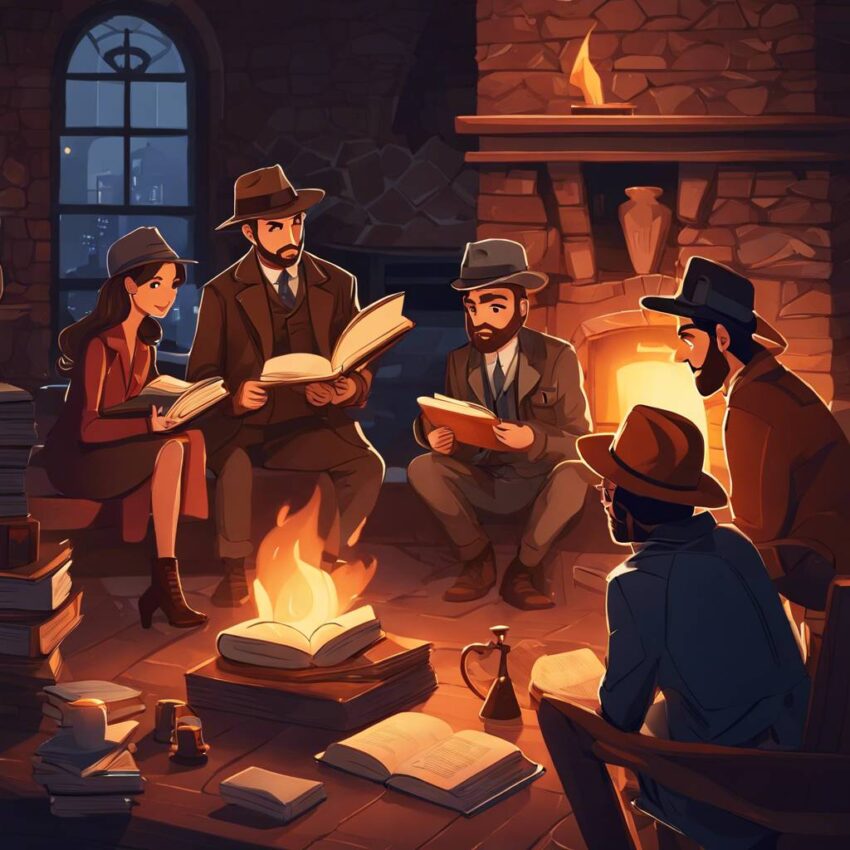Hisham Matar’s latest exploration of friendship amidst political turmoil in Libya is a poignant reminder of how personal lives intertwine with historical events. Just like Matar’s characters, who navigate affiliations with their homeland and their lives in exile, the protagonists in cozy murder mystery books and murder thriller books for sale often find themselves at the crossroads of intimacy and broader societal events. The connection between the deeply personal and the political is one key element these genres share, making them both reflective and engaging.
In the realm of cozy mystery and murder thriller titles, amateur sleuths often grapple not only with the puzzles before them but also with the intricacies of human relationships. Female detective titles, which have risen in prominence, add a layer of complexity by offering perspectives that combine the methodical with the empathetic. While the context in Matar’s novel is political unrest, the amateur sleuth in a cozy mystery navigates through the microcosm of community upheavals—be it a local festival marred by murder or a secret society’s influence in a small town.
One can draw inspiration from Matar’s focus on the intimate aspects of his epic tale, illustrating that at the heart of every grand narrative are the individual experiences. This notion also lies at the core of creating captivating cozy murder mystery books. Here, often set in a tranquil setting, the storm is internal, stirring within the confines of the community and the hearts of its individuals. The appeal of these stories is not merely in the ‘whodunit’ intrigue, but in the nuanced portrayal of relations that keep readers returning.
The focus on relationships is not lost in the faster-paced murder thriller books for sale, where the tension is palpable, and the stakes are high. Still, the interplay of characters and their bonds can elevate the plot beyond a simple chase of cat and mouse. These stories can breathe life into the broader themes of loyalty and betrayal, sacrifice and survival—mirroring the very themes explored in tales of exile and uprising such as the one set against Libya’s political backdrop.
For an aspiring writer or an avid reader, Matar’s method, which involves writing over a long period and reflecting deeply on themes, can be instructive. Developing a murder mystery or thriller often requires keen observation and a deep dive into the emotional wellspring of characters. These narratives can take time to mature, as they are woven through with the filaments of lived experiences, much like Matar’s characters who carry the wisdom of old lands into their present challenges.
Moreover, for fans of cozy mystery and murder thrillers, understanding the catalysts of conflict, such as those rooted in historical events, can deepen their appreciation of the genre. The political unrest in Libya and the portrayal of exile offer an understanding of how displacement and change can act as powerful backdrops for personal stories. Even in the quaint settings of a cozy mystery, the echoes of larger societal dissonances can be discerned if one listens carefully.
In conclusion, stories such as the one Matar presents, reflective of friendships tested by time and turmoil, resonate beyond their pages. Whether it’s through the lens of an amateur sleuth, the sharp mind of a female detective, or the comforting wrap of a cozy mystery novel, the sheer breadth of human experience remains the fertile ground from which engaging narratives grow. For anyone intrigued by the oscillation between the personal and the historical, there is much to be explored within the bindings of a well-crafted mystery or thriller—and plenty to be learned about crafting your own stories from the masters of the art.


